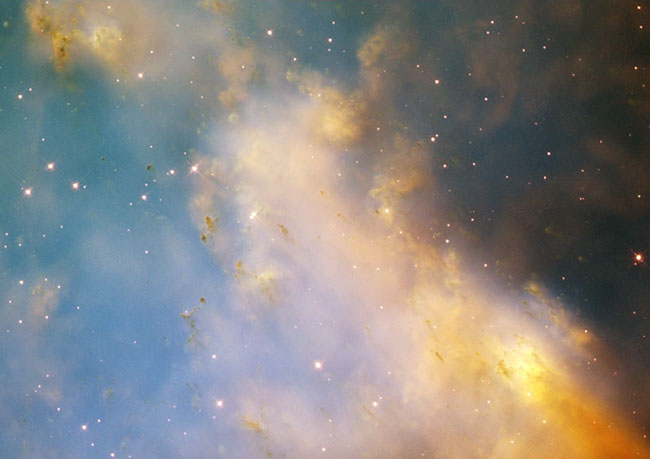Explanation: What causes unusual knots of gas and dust in planetary nebulas? Seen previously in the Ring Nebula, the Helix Nebula, and the Eskimo Nebula, the knots' existence was not predicted previously and still not well understood. Pictured above is a newly released image of the Dumbbell Nebula by the Hubble Space Telescope showing details of its gaseous knots. Also visible are many bright young stars and dark sheets of interstellar dust. The Dumbbell Nebula, also known as M27, is a planetary nebula thought similar to what our Sun will become when it runs out of core fuel for nuclear fusion. Recent study of similar cometary knots indicates that they include concentrations of relatively cold molecular gas and that they change significantly as the planetary nebula ages.
APOD Update:
APOD now also available from Japan in Japanese.
1999 2000 2001 2002 2003 2004 2005 2006 2007 2008 2009 2010 2011 2012 2013 2014 2015 2016 2017 2018 2019 2020 2021 2022 2023 2024 2025 2026 |
Yanvar' Fevral' Mart Aprel' Mai Iyun' Iyul' Avgust Sentyabr' Oktyabr' Noyabr' Dekabr' |
NASA Web Site Statements, Warnings, and Disclaimers
NASA Official: Jay Norris. Specific rights apply.
A service of: LHEA at NASA / GSFC
& Michigan Tech. U.
|
Publikacii s klyuchevymi slovami:
dumbbell nebula - M 27 - Tumannost' Gantel'
Publikacii so slovami: dumbbell nebula - M 27 - Tumannost' Gantel' | |
|
Sm. takzhe:
| |
